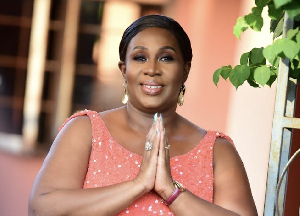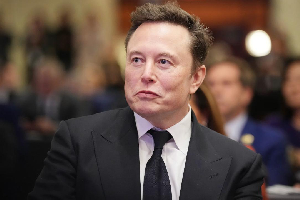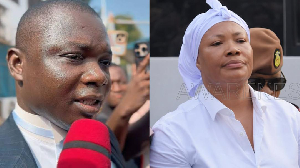By Kwame Okoampa-Ahoofe, Jr., Ph.D.
I really have neither passion nor interest in either the fortunes or even the very existence of the so-called Convention People’s Party (CPP). But when somebody called Mr. Murtala Mohammed presumes to impugn the citizenship and nationality of Ms. Samia Yaba Nkrumah, then, of course, eyebrows ought to be raised (See “No Egyptian Goddess Can Decide for CPP – Youth Organizer” MyJoyOnline.com 11/30/11). The last time that I checked, there was a General Murtala Mohammed of the Nigerian Armed Forces, and a coup plotter, who was assassinated in 1976 in a foiled counter-coup detat after having been in power for barely three months. General Murtala Mohammed would be succeeded by the future President Olusegun Obasanjo.
What I am trying to imply here is that the name Murtala Mohammed, a bona fide Hausa-Nigerian name, is not known to be routinely associated with the ideological concept of constitutional democracy; neither is it, as aforesaid, associated in any way, shape or form with Ghanaian nationality. The interesting thing here, though, is that in spite of the clearly Nigerian ring to the name, nonetheless, Mr. Murtala Mohammed managed to get himself elected as the National Youth Organizer of the rump-Convention People’s Party. Maybe the young man ought to be reminded of the often conveniently ignored fact that former and late President Kwame Nkrumah once deported a Ghanaian-born Hausa-Nigerian Kumasi-Aboabo Muslim-community leader called Alhaji Amadu Bamba, because the latter had dared to show public support and patronage for the Danquah-Busia-led United Party (UP) – (See Apter’s Ghana In Transition).
What also needs to be highlighted here is the fact that during the Kangaroo judicial proceedings that effected the summary and immediate deportation of Alhaji Bamba, the prosecutor representing the much-vaunted pan-Africanist President Nkrumah and, in effect, the Ghanaian State, risibly demanded to be shown a copy of the birth certificate indicating that, indeed, the subject of deportation proceedings had been born and raised in Ghana. The ironic twist here inhered in the fact that the man fervidly seeking the summary deportation of Alhaji Bamba neither possessed a birth certificate nor even knew the exact date and year in which he had been born. But, of course, he had been able to con Ghanaians into overwhelmingly voting him into power as their leader and thus could well afford to doggedly pursue a shameless political agenda of double standards.
What has also been conveniently shelved by the fanatical followers of Mr. Nkrumah, is the fact that their idol/hero was the first postcolonial African leader to make the invidious practice of “selective deportation” of his ardent political opponents a major foreign policy tool. And yet, it is Dr. Kofi Abrefa Busia, arguably the most democratic Ghanaian leader in the postcolonial era, who is routinely and self-righteously brought up for carping when the subject of deportation is broached. For instance, a Ghanaian writer recently paying tribute to the late Gen. Odumegwu Ojukwu, of Biafran-War infamy, had occasion and the temerity to impugn the leadership capacity and credibility of the Oxbridge scholar by speciously claiming that Prime Minister Busia may well have set the two leading Anglophone West African countries against each other. Needless to say, it would have been quite an eye-opener for the writer to also have learned for his own edification what the then-President Nkrumah had to say in reaction to the bulletin announcement of the assassination cum overthrow of Prime Minister Tafawa Balewa, an equally democratically elected fellow African leader.
Similarly, the same writer paying tribute to Gen. Ojukwu had the chutzpah to scornfully condemn the foresighted Prime Minister Busia for wisely and soundly calling for a constructive dialogue with the erstwhile Apartheid South African regime, conveniently and disingenuously “forgetting” to also poignantly observe the fact that, indeed, not only had President Nkrumah called Mr. Nelson Mandela an “Uncle Tom” for seeking a peaceful resolution to the Apartheid conundrum, but even more painfully, the egomaniacal Ghanaian ruler had flatly refused to meet with the African National Congress (ANC) leader in his own capital city of Accra, let alone offer any material assistance to Umkhonto We Sizwe, the military wing of the ANC. That in the end it was the wise and circumstantially pragmatic counsel of Prime Minister Busia, vis-à-vis the most effective way for a woefully under-armed and virtually defenseless Black Africa to resolving the Apartheid riddle that prevailed, of course with some military backing from Fidel Castro’s Cuba in later years, does not seem to have occurred to Ojukwu’s profuse homage payer.
What is rather quizzically fascinating is the fact that Mr. Murtala Mohammed, the rump-CPP National Youth Organizer, was fully aware of the half-Egyptian identity of the unmistakably Ghanaian-named Ms. Samia Yaba Nkrumah when his party not only elected the daughter of President Nkrumah to her father’s old job of CPP Chairman, but even more significantly consented to working under the Member of Parliament for Jomoro constituency, in the Nzema district, until Ms. Nkrumah started calling the proverbial shots as prescribed by her job description.
*Kwame Okoampa-Ahoofe, Jr., Ph.D., is Associate Professor of English, Journalism and Creative Writing at Nassau Community College of the State University of New York, Garden City. He is Director of The Sintim-Aboagye Center for Politics and Culture and author of “Dr. J. B. Danquah: Architect of Modern Ghana” (iUniverse.com, 2005). E-mail: okoampaahoofe@optimum.net. ###
Opinions of Saturday, 17 December 2011
Columnist: Okoampa-Ahoofe, Kwame
Is Murtala Mohammed a Ghanaian?
Opinions













